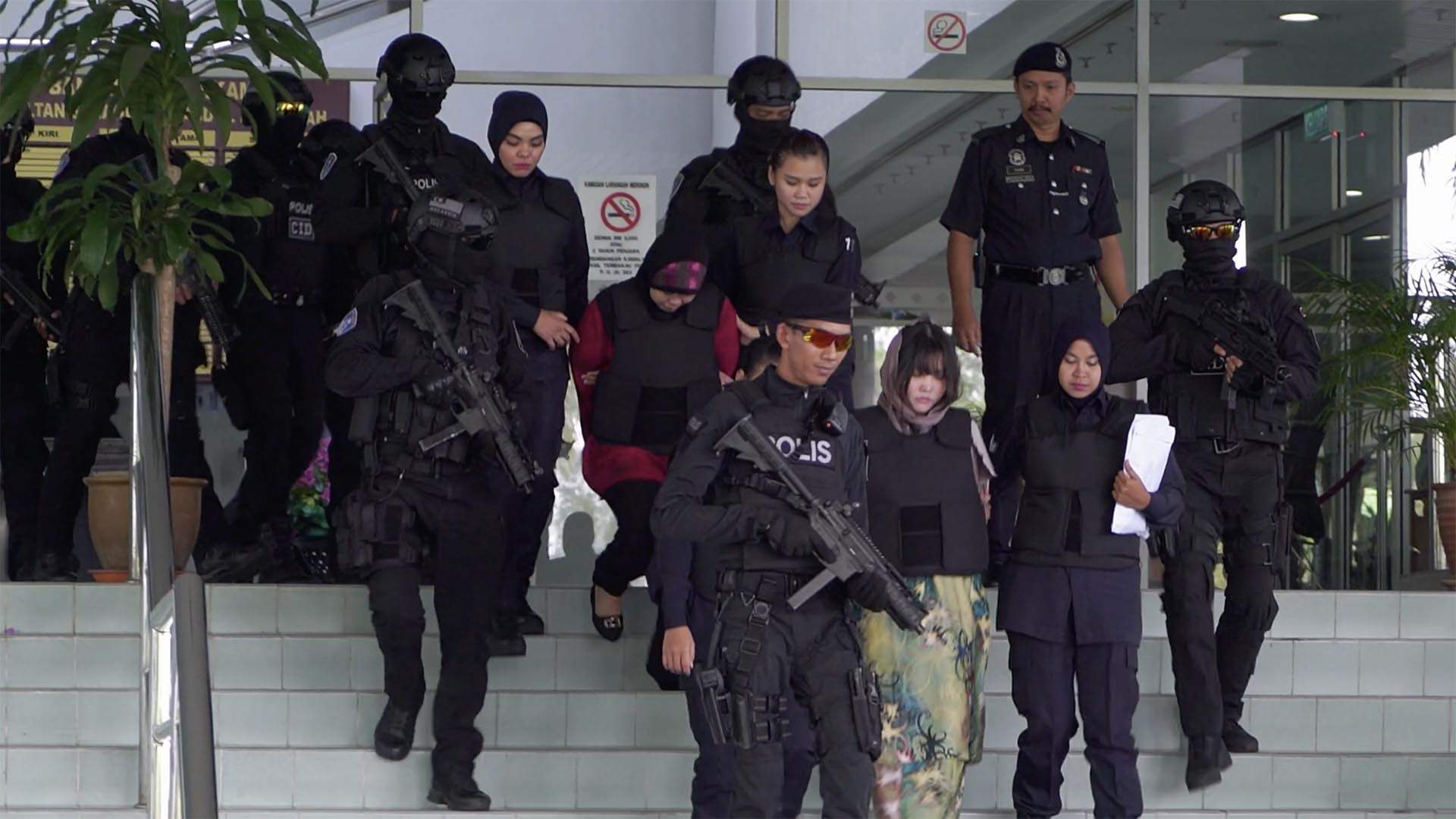Assassins
Exploring a shocking 2017 assassination, this gripping true-crime documentary has to be seen to be believed.
Overview
UPDATE, March 19, 2021: Assassins is available to stream via Docplay.

If a Hollywood screenwriter had cooked up the story at the centre of Assassins, they would've been told that it's too far-fetched. The plot likely wouldn't have even made it into the many direct-to-streaming action flicks that wear their over-the-top narratives as a badge of honour, and probably only would've reached screens in an Armando Iannucci-style satire. Indeed, this is the type of tale that can only be true. Not that the world needs any additional reminders, but it's yet more proof that real life really is far stranger than fiction. And, while this exceptional documentary from filmmaker Ryan White (The Keepers) won't be the only movie to bring the story to the big screen — dramatised versions are guaranteed to follow, and other flicks are certain to mine its minutiae as well — it'll always remain one of the best.
On February 13, 2017, at the Kuala Lumpur International Airport, a man was assassinated in broad daylight. While standing by the self check-in kiosks at around 9am, he was approached from behind by two women. After they each rubbed their hands across his face, he was dead within the hour. For a plethora of reasons, the attack garnered global news headlines. Such a brazen murder, carried out not only in public but also in full view of the Malaysian airport's security cameras, was always going to receive worldwide attention. The use of extremely deadly chemical weapon VX obviously demanded scrutiny — and so did the fact that the victim was Kim Jong-nam, the estranged elder half-brother of North Korean leader Kim Jong-un. But, despite the onslaught of newsprint, pixels and airtime devoted to the incident when it happened, the full details behind it took time to unfurl. As Assassins explores, those facts are fascinating, gripping and distressing in equal measure.
Across 104 minutes, White asks the question that was on everyone's lips four years ago: why? That query has many layers. It starts with wondering why two women in their 20s — one from Indonesia, the other from Vietnam — with no clear political affiliations would kill an exiled North Korean who was once expected to lead his nation. From there, it expands to contemplate why Malaysian law enforcement officers and prosecutors were so content to believe that culprits Siti Aisyah and Doan Thi Huong acted without any involvement from North Korea, and why a number of the latter country's citizens were interviewed, but then released and allowed to return home without facing any legal repercussions. Aisyah and Huong certainly weren't afforded the same treatment. Charged with Kim Jong-nam's murder, they were put through a long trial, and faced the death penalty if convicted. The pair, who didn't know each other beforehand, pled their innocence from the outset. Both women were adamant that they had each been hired to make prank videos for a YouTube show and, as far as they knew, their efforts in Kuala Lumpur were part of their latest production.
For those who haven't followed the case in the media, Assassins meticulously steps through the ins and outs. Even if you are familiar with the specifics, the film provides an exhaustive summary. Via interviews with Aisyah and Huong's attorneys shot as the trial was unfolding, it offers an evolving perspective on the two women's situation. For additional detail, it checks in with local Bloomberg reporter Hadi Azmi as he's covering the case. In chats that look back rather than happened as the legal proceedings occurred, it gets the Washington Post's former Beijing bureau chief Anna Fifield to fill in the gaps, including about North Korea's political history, how Kim Jong-nam came to be the black sheep of his family and the hopes some had that he could one day be installed as an alternate leader. Assassins also features discussions with Aisyah and Huong's friends and families, the prank show clips that were central to the duo's defence and audio from their time in court. Returning again and again to CCTV footage of the attack, it turns two well-worn true-crime doco staples — security vision and animated re-enactments — into must-see viewing. From its opening moments, the documentary couldn't be more methodical; however, its tone is just as important as its wealth of material.
Assassins tells an unmistakably and inescapably wild tale. As the film works through the attack and its aftermath, White knows that he's in prime thriller territory, too. But, even though this story has more genuine twists, turns and conspiracies than the best works of fiction, it's compiled in an edge-of-the-seat yet never sensationalistic fashion. That's essential not only to accurately survey all the relevant details, but to treat Aisyah and Huong with empathy — and, as the movie explains, no other approach would be suitable. In fact, as remarkable a job as Assassins does in examining the incident in its spotlight, it's even more exceptional at showing how disturbingly easy it was to lay the blame upon a single mother and a cocktail waitress.
Accordingly, what starts as a jaw-dropping murder tale becomes a globe-hopping account of exploitation, manipulation and gaslighting — and an equally chilling and infuriating one in the process. Assassins doesn't shout its sense of outrage, but the film is both thorough and incensed, as it needs to be. Given the troubling overall picture that it convincingly paints, nothing else would've sufficed. After all, this is a documentary about a world where a country's agents might've gotten away with murder, all because too many people were willing to buy a flimsy cover story that pointed the finger at two vulnerable women.





